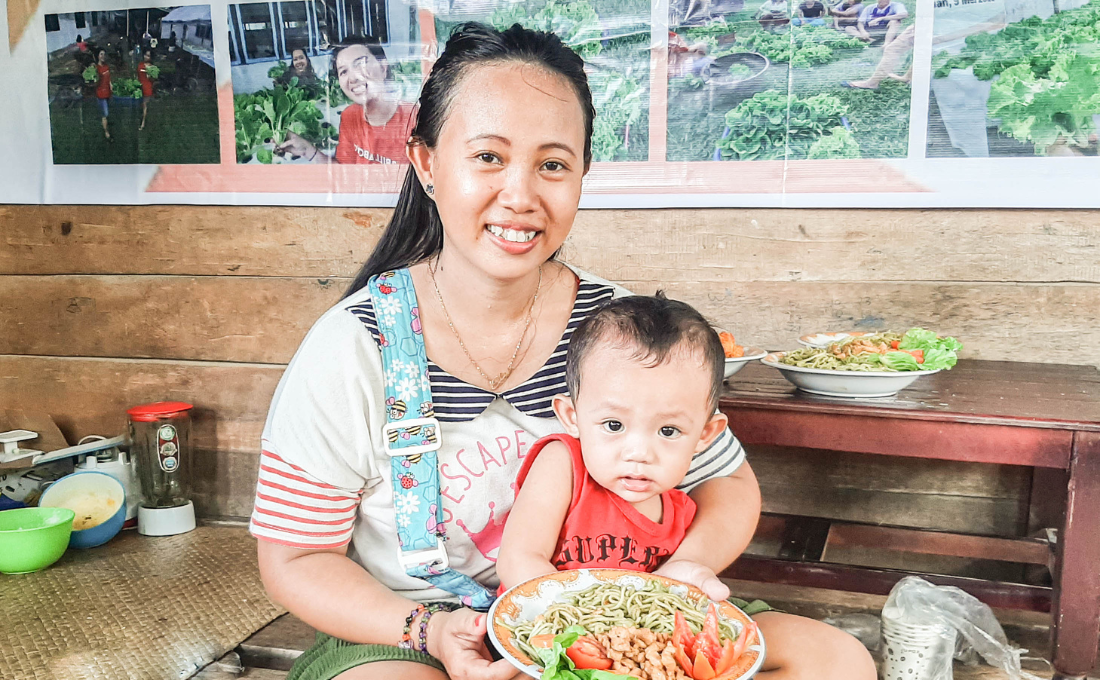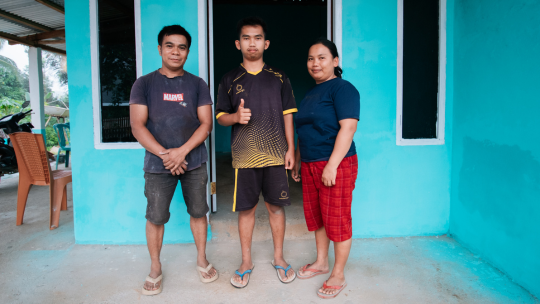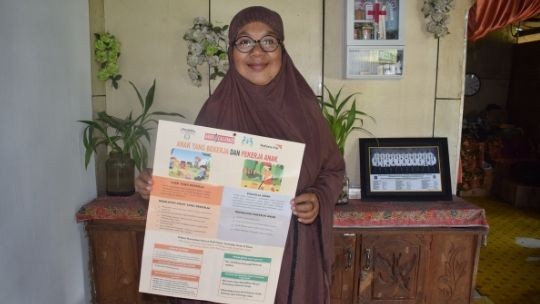Sintang Mothers Fight Back Against Ultra-Processed Foods to Protect Children's Nutrition

What makes a mother stress? One of the biggest trigger is checking the weight scale. Not for weighing herself, but for weighing her child every month. A mother's heart overflows with joy when the community health worker or midwife announces that her baby has gained weight. Conversely, her heart sinks if her baby has lost weight. Especially if her child is frequently picky, refusing nutritious food but eagerly devouring ultra-processed food.
Eliyanti (25), a mother of a 1-year-and-3-month-old baby, often feels anxious because the early stages of her child's complementary feeding were not smooth. Her child frequently asked for instant noodles instead of the homemade meals Eliyanti prepared. Instant noodles became her child's favorite food. Although convenient and popular among children, instant noodles are actually not recommended for toddlers. There are several reasons why:
-
Low Nutritional Content: Instant noodles are generally low in fiber, vitamins, and minerals, which are essential for a child's growth and development. Their nutritional content consists mostly of simple carbohydrates that are quickly digested but do not provide complete nutrition.
-
High Sodium Content: The salt (sodium) content in instant noodles is very high, far exceeding a child's daily needs. Excessive salt intake can increase the risk of high blood pressure in children.
-
Additives: Instant noodles contain various food additives such as preservatives, artificial colors, and flavorings that may not be safe for consumption by children, especially babies.
-
Risk of Obesity: Regular consumption of instant noodles can increase the risk of childhood obesity due to their high calorie and fat content. Childhood obesity can trigger various other health problems later in life.
-
Digestive Disorders: Instant noodles can cause digestive problems in children, such as constipation or diarrhea, especially if consumed in large quantities or too often.
"My child now really likes instant food like Indomie and finds it difficult to eat vegetables," she said. She was worried that her child was not getting enough nutrition if he consumed too much instant food. Mothers in Eliyanti's village also complained about the same thing. Children were more interested in ultra-processed foods than whole foods.
In addition to ultra-processed foods, nutritious foods also had another competitor in the village: snacks. Rafa, an 11-year-old boy, loved eating instant noodles at school. Yet, the ingredients used for those noodles contained many preservatives and sodium. Rafa's habits began to change when his mother started making homemade noodles.
"I like the taste of fern noodles cooked by my mother because noodles made by our parents' hands are definitely healthier and free from harmful preservatives," Rafa said with a smile.
Eliyanti and Rafa's mother now have new skills that have successfully made their children eat nutritious food more eagerly. "After attending the food processing training held by WVI and Betang Pelita, I learned how to make noodles from ferns, spinach, and cabbage, as well as nuggets from chicken, carrots, eggs, and tapioca flour. Of course, these foods have good nutritional content and do not use preservatives. I feel more at ease when my child only wants to eat noodles," said Eliyanti. "Besides, I gained new knowledge about local food ingredients that are high in nutrition, which is very good for my child growth and development," she added.
Mothers no longer have to struggle to find local food ingredients because the village has a nutritional garden that supplies a variety of vegetables. Ferns, spinach, and cabbage, which are some of the ingredients for making homemade noodles, can be taken by mothers from the harvest of the village's nutritional garden.
Children in Sintang can now eat well because their parents have become more skilled in processing balanced nutritious food. This will support the improvement of child nutritional status and maintain the health of school-age children like Rafa. This good practice can also be an example for other mothers who may be facing the same challenges. Let's work together to improve child nutrition in Indonesia and say no to suboptimal child nutritional status.
Author: Fransiskus T. N. S. M. (Betang Pelita staff, WVI’s local partner in Melawi and Sintang, West Kalimantan)
Editor: Mariana Kurniawati (Communication Executive)



